Can Switzerland convince its people to take the Covid-19 vaccine?
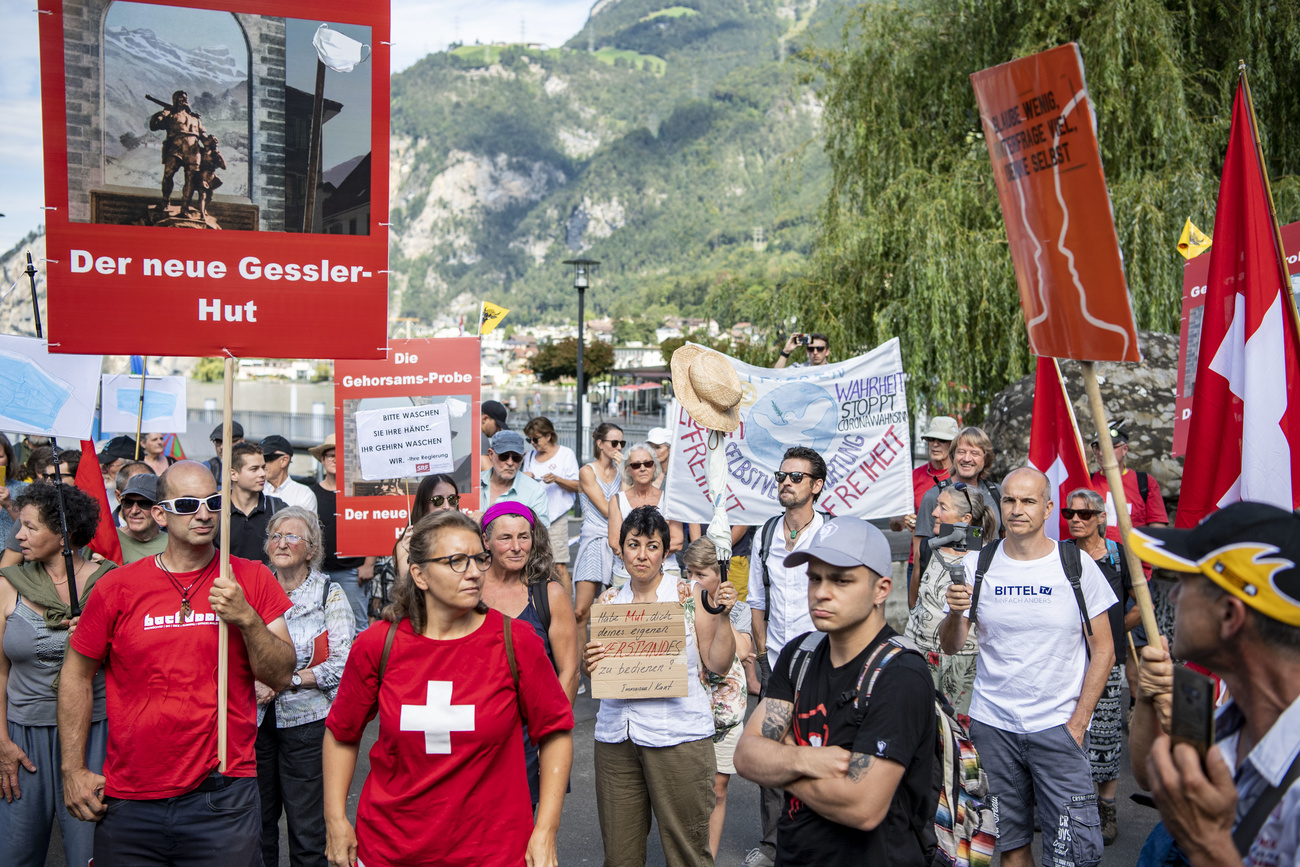
With several potential coronavirus vaccines in late stages of development, the next step is convincing a large swath of the population to agree to a shot in the arm. It’s a tall order in Switzerland, where the level of vaccine hesitancy is among the highest in the world.
In the middle of a brutal second wave of the coronavirus that saw new daily cases hit an all-time high this autumn, a nationwide survey asked: would you get vaccinated against Covid-19?
More than a quarter of people (28%) said they would not. Nearly half (47%) were hesitant, saying they would get it only if there were no side effects, or that they would “wait and see”.
According to a large-scale study on vaccine confidence in 149 countries published in The LancetExternal link in September 2020 and reported by Swiss public radio RTS, in recent years the Swiss have grown more hesitant about vaccines. The percentage of people who believe that vaccines are important declined between 2015 and 2019 (from 65% to 53%). Fewer people also believe that they are effective (from 50% in 2015 to 45% in 2019). Only confidence in vaccine safety increased in this period (from 30% to 33%).
The study draws in part on a 2018 study by the Wellcome TrustExternal link, which placed Switzerland among the top five countries in the world for vaccine scepticism. Some 22% of Swiss disagreed that vaccines are safe, the highest percentage in Europe after France; 9% disagreed that vaccines are important for children to have.
A poll conducted in 27 countries for the World Economic ForumExternal link this summer found that three-quarters of adults strongly or somewhat agreed with the statement, “If a vaccine for Covid-19 were available, I would get it”. In France, the rate was 59% and in Germany it was 67%. In Switzerland, which was not included in the WEF survey, only 16% of people polled in October-November by the SBC said they would immediately get the vaccine when it becomes available.
The survey of 40,000 people by the Swiss Broadcasting Corporation (SBC), the parent company of SWI swissinfo.ch, confirmed trends seen in previous studies showing a high degree of vaccine scepticism among the population. Internationally, the Swiss register among the lowest levelsExternal link of vaccine confidence. The global pandemic, with its potent mix of uncertainty and widespread misinformation, has done nothing to quell this hesitancy.
With the roll-out of an effective Covid vaccine still months away, there is time for authorities to plan information campaigns. But there are speedbumps ahead, starting with savvy anti-vaccination advocates on social media whose rhetoric observers say risks infecting the undecided.
Boom time for anti-vaxxers
To understand the scale of the online anti-vaccination movement, the UK-based Center for Countering Digital Hate (CCDH) did an audit. It identified over 400 English-language anti-vaccination accounts on social media with 58 million followers, pushing false or misleading claims about the importance or safety of vaccines.
“Covid has been a growth opportunity for anti-vaxxers,” it states in an analysisExternal link, which reveals the most popular accounts have experienced a 19% growth in follower numbers since 2019.
For Pascal Wagner-Egger, a social psychology researcher at the University of Fribourg, this is not surprising.
“We know that in times of anxiety, there is an increase in unverified rumours and suspicions,” he said. A pandemic that lasts months, if not years, offers even greater scope for misinformation to spread and linger online.
In a sign that the anti-vaccination movement is using the pandemic to advance its political agenda, there are currently efforts to launch a people’s initiative to prevent compulsory vaccination in Switzerland. Critics say this is scaremongering. Currently no such obligation exists and getting vaccinated remains an individual choice. Switzerland’s approach is unique in that voters overwhelmingly rejected a law on epidemics that would have made vaccination against smallpox compulsory back in 1882, as historian Laurent Henri-Vignaud pointed outExternal link in an interview on Swiss public radio, RTS.
“The debate in Switzerland is democratic, but we still see a contradiction with vaccination policy, which comes from the top down – and it can’t be otherwise, since the issue is of public interest,” he said.
Although the current Epidemics Act allows authorities to make a vaccine compulsory for certain risk groups, such as care home staff, this measure is possible only if no other option exists for getting a disease under control and would not lead to penalties for someone refusing the vaccine.
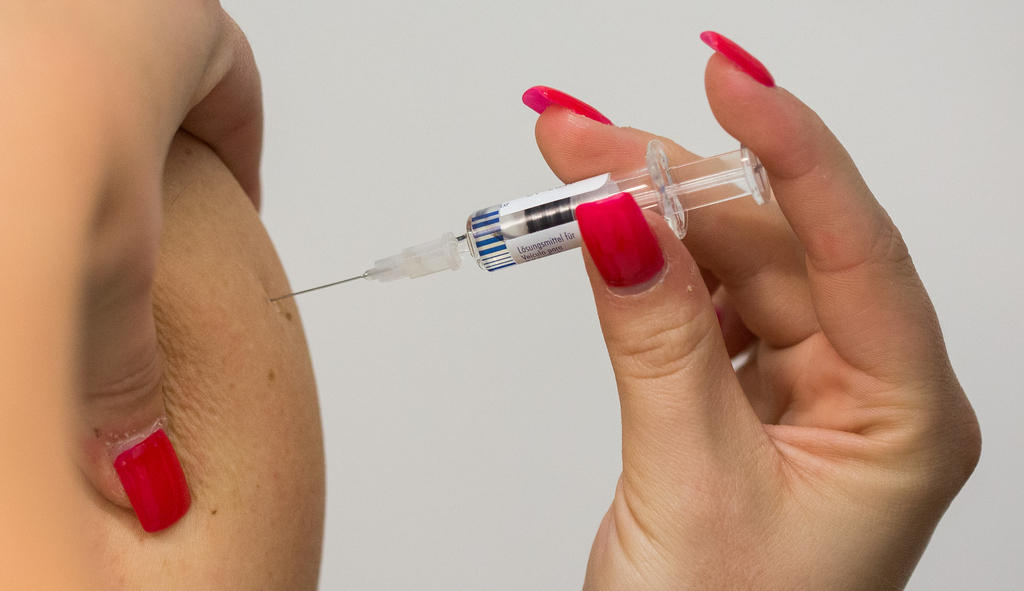
More
Vaccine scepticism – a phenomenon in affluent societies
Yet as countries debate how to ensure broad coverage of the Covid vaccine for their populations, vaccine sceptics are alarmed by rumours about imminent scenarios in Switzerland, including that only those with a proof of vaccination would be able to travel.
“We haven’t seen this intensity [of anti-vaccine sentiment] in a measles or HPV [human papillomavirus] campaign, but the general problem is the same,” said Mark Witschi, head of vaccination recommendations at the Federal Office of Public Health. “It’s a belief, like religion.”
Like conspiracy theorists, anti-vaxxers tend to distrust government and science, said Wagner-Egger, who engages with members of the anti-vaccine community on social media as part of his work studying conspiracy theories. They are intuitive thinkers who, rather than believing in the scientific consensus, might latch on to what a single scientist says, by “cherry-picking” or looking for information that confirms their beliefs.
“Vaccination is a complex issue, but people simplify and say it’s dangerous or that Bill Gates wants to poison us,” Wagner-Egger added.
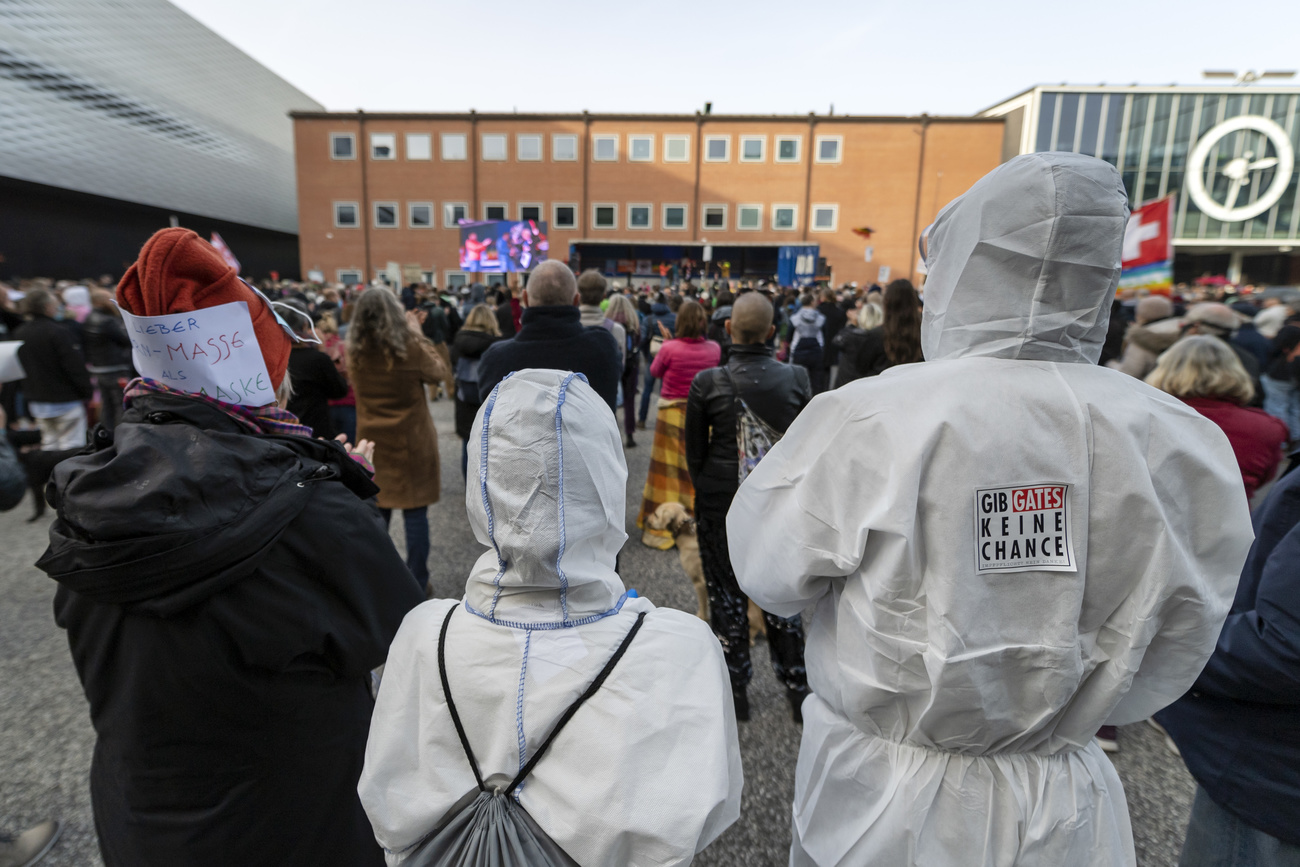
More
Third of Swiss prone to believe conspiracy theories
Reaching out to the undecided
Witschi estimates that 3-5% of the Swiss population is staunchly against vaccination, an estimate that may also hold in the case of the Covid vaccine. Both he and Wagner-Egger say these are people who will not change their minds.
Instead, the main target for public health officials looking to improve confidence in vaccination is the same coveted group anti-vaxxers are looking to convince: those who are unsure of the importance, safety or efficacy of vaccines. A group of scientistsExternal link writing in the journal Nature found that clusters of more than 50 million undecided users were “heavily entangled” with anti-vaccination clusters on Facebook.
People online, including swissinfo.ch readers, are expressing a variety of concerns about a future Covid-19 vaccine: how serious will the side effects be, and can pharmaceutical companies and governments be trusted to ensure the vaccine is safe? The palpable sense of urgency to get the virus under control has prompted an unprecedented acceleration of the search for a vaccine, a process that normally takes years.
“This feeds into people’s scepticism and [anti-vaxxers] think this is their chance to get people on their side,” said Witschi, who added that Swissmedic, the federal surveillance authority for medication and medical devices, is working with international counterparts to make sure any future Covid vaccine is safe.
“The only way forward is to inform people who are hesitant – because they don’t have the information yet – so they can make a decision” about getting the vaccine, he added.
With just 16% of those surveyed for the SBC poll saying they would get the vaccine as soon as it becomes available, the public health office has its work cut out. It intends to secure enough vaccine stocks for 60% of the population, which it believes may be enough to contain the virus. But this will only become clear once vaccination is well underway and authorities can assess its impact on the spread of the disease.

More
Swiss cautiously optimistic about Pfizer Covid-19 vaccine results
According to Witschi, a public information campaign can begin once a vaccine is approved by Swissmedic, which its deputy director estimates may be possibleExternal link in the first quarter of 2021. An urgent task is to understand the reasons people choose not to get vaccinated and address these, Witschi said.
“It’s important to build trust in the system, and explain how vaccines are produced, tested, authorised and monitored […] to show that we know what’s going on and people don’t think that we don’t care about the process,” he said.
Show and tell
L. Suzanne Suggs, a social marketing professor at the Università della Svizzera Italiana in southern Switzerland, agreed that having a transparent dialogue will be key – people will want authorities to be honest about any problems with the vaccine.
A large-scale Covid vaccination programme will be rolled out over months, which means the virus will not disappear overnight. There will also be different vaccines of varying potency (and side effects) aimed at different age groups.
“Scepticism grows with every message on social media about any kind of side effect [and] we will see this problem when other countries start vaccinating before we do,” Witschi said.
At the end of the 18th century, an English doctor named Edward Jenner developed an effective vaccine against the smallpox that within a decade was being used around the world. Opposition to the vaccine was “swift and savage”, according to the BBCExternal link. When the UK government made the smallpox vaccine mandatory, there were objections about interference in people’s private lives and fears regarding safety. Riots broke out, and anti-vaccination leagues emerged.
In Switzerland, a proposed new law on epidemics that included making the smallpox vaccine compulsory was rejected by voters in 1882. The campaign was of a “rarely seen violence”, historian Olivier Meuwly writesExternal link, with “shock images” of suffering children circulated to support claims the vaccine was not safe.
In more recent times, the measles has been the subject of fierce anti-vaccination sentiment. Several outbreaks have occurred in Switzerland, despite successive government plans to eliminate the disease. A 2011-2015 strategyExternal link combining efforts by the federal government, the cantons (which are responsible for health matters) and medical and educational partners succeeded in expanding vaccination coverage among young adults and children. However, in 2019 Europe reported its highest number of measles cases in a decade, attributed partly to parents refusing to have their children vaccinated, according to the World Health Organization.
Suggs, whose research focus is vaccination uptake, said that having the right policies in place can be an effective type of messaging.
“When vaccines are paid for by health insurance or the government, and they are easy to access, the clear message to the population is that vaccines are really important,” and this traditionally leads to higher rates of acceptance, she said.
Wagner-Egger pointed out that people in prosperous countries like Switzerland no longer see the negative consequences of communicable diseases that have been largely eradicated through vaccination, so they may be less likely to believe that vaccination is important. Showing old footage of the ravages of polio, for example, might be an effective way of communicating the importance of inoculation, he said.
Indeed, according to Witschi, “the higher the perceived risk [of the illness] among the population, the more people will be willing to get the vaccine.”
“The pandemic is so present, and everyone is confronted with it daily [that] forgetting to get the vaccine won’t be an issue,” he predicted.
Ultimately, with the right information, he believes the population will get on board.
“The implication is simple – the more people are immunised, the less transmission we have, the less pressure [we have] on hospitals, the fewer tests that need to be done,” he said. “With a vaccine, we can help to reduce all of this pressure.”
More

In compliance with the JTI standards
More: SWI swissinfo.ch certified by the Journalism Trust Initiative









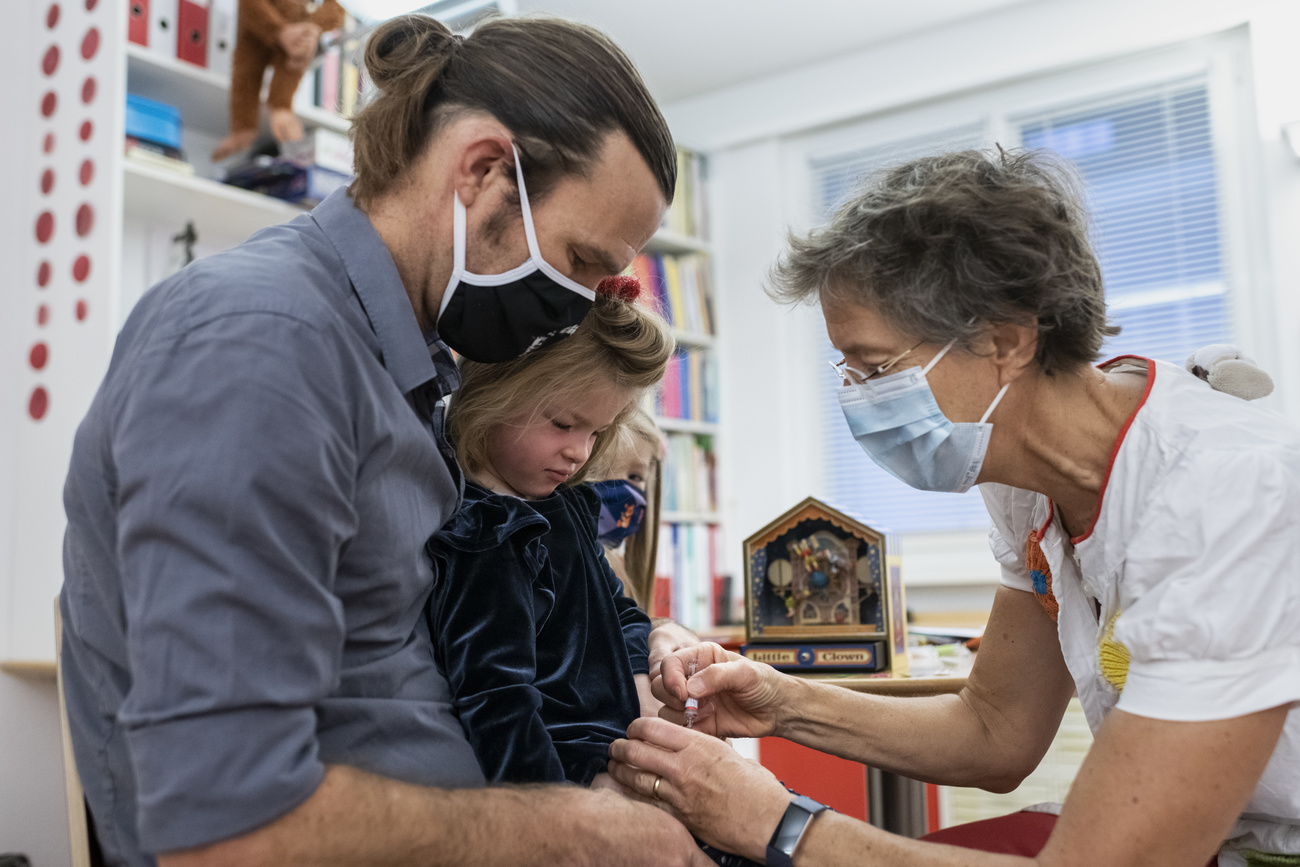
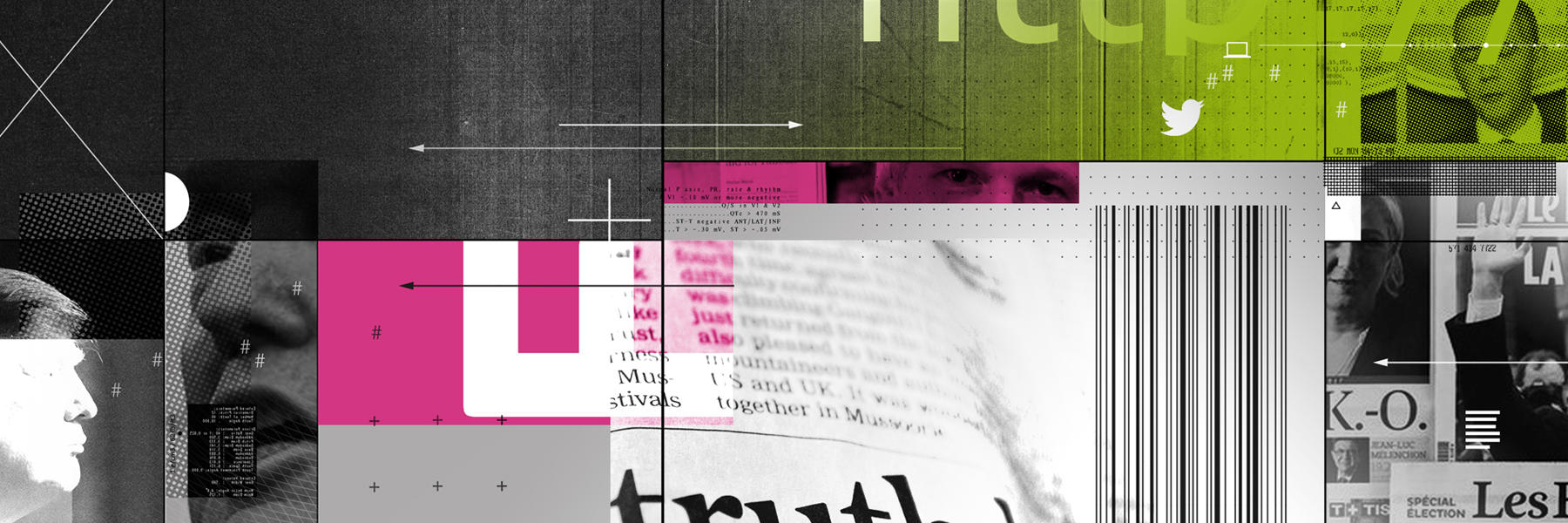


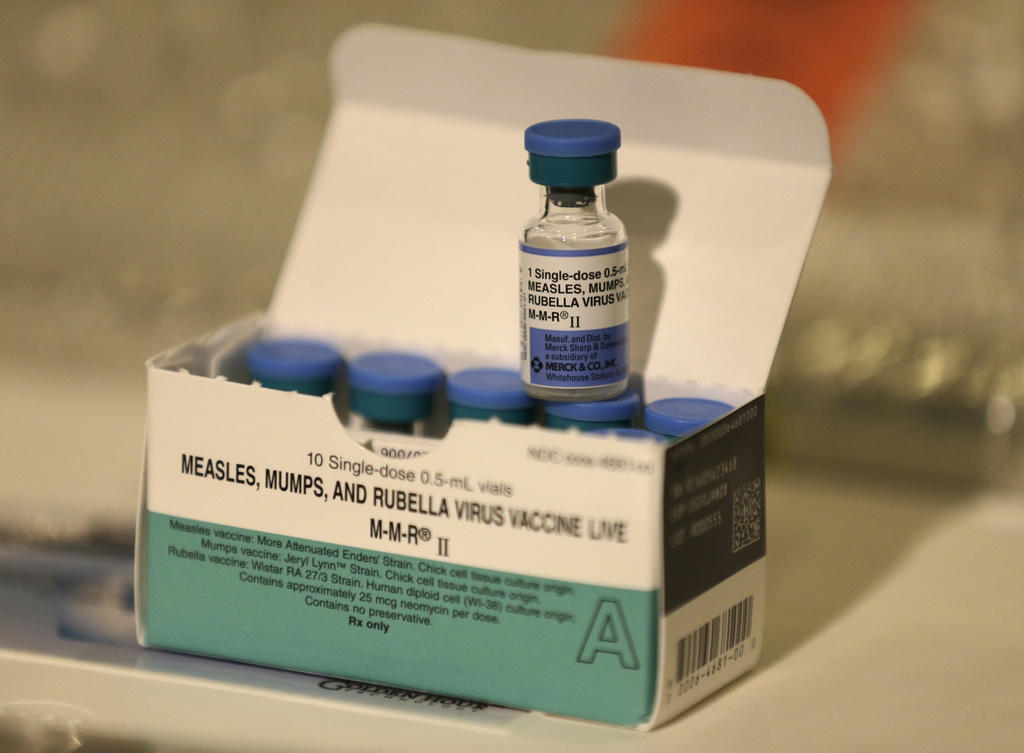
Join the conversation!